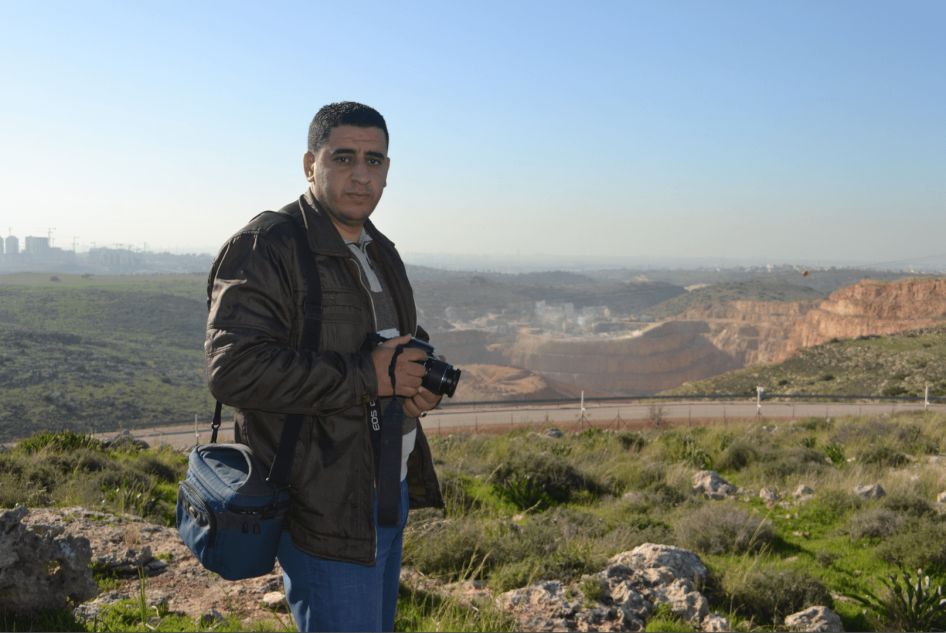The German company Heidelberg Cement operates a quarry in the Israeli-occupied West Bank where residents of the Palestinian village of Zawiya once farmed. Journalist Azmi Abdel Karim Shuqeir said his extended family grew lentils, fava beans, wheat and sesame on the land. In 1982, Israeli bulldozers cleared a portion of the land, he said. Israeli authorities declared it a closed military zone, but soon converted part of it into a gravel quarry.
Lawsuits filed in Israeli courts did not stop this or the subsequent confiscation of adjacent plots of land that allowed the quarry to expand. Since around 2004, Zawiya has been cut off from the quarry area by the wall, or separation barrier, that Israel built after the Palestinian suicide attacks of the second intifada. Now, Shuqeir can only look from afar at the land his people once tilled; his aged parents are the only family members allowed by the Israeli military to tend to the shrinking plot they still own on the quarry side of the barrier, he said.
The Heidelberg quarry exemplifies how businesses that operate in, or pay taxes to, Israeli settlements, cannot avoid complicity in abuses, violating a responsibility they have under the U.N. Guiding Principles on Business and Human Rights.
Heidelberg justified its operations in a letter that Human Rights Watch has reprinted in its new report, Occupation, Inc. The company said that it operates on “state land,” not former private property, and brings benefits to the local population by paying royalties to the Israeli Civil Administration and taxes to the settlement Samaria Regional Council, and by employing Palestinian workers whom it says it pays and treats equally to its Israeli workers.
Heidelberg’s arguments do not withstand scrutiny. Even if a court were to determine the land had not been in private hands, the laws of occupation prohibit Israel from using resources in occupied territory for its own benefit regardless of who owns the land.
Nor does hiring Palestinians justify Heidelberg’s action. Those workers face a Catch-22: the Israeli policies designed to benefit settlements make it difficult to find employment elsewhere. These policies include the confiscation or closure of the land that once sustained the workers’ families, and discriminatory restrictions on construction that chokes off growth in the Palestinian economy. While 11 Israeli and foreign-run quarries and crushers operate in the 60 percent of the West Bank that Israel administers directly (“Area C”), a Palestinian has not been granted a permit to open a new quarry in Area C for more than two decades, and some current permit-holders face difficulty renewing.
Heidelberg paid $585,000 in taxes in 2014 to the Samaria Regional Council, which provides municipal services to the more than 25 settlements in the region, thus helping to sustain these communities that are illegal under international law.
Shuqeir’s story is hardly unique: hundreds of Palestinian families in this rural area near the Green Line have lost part of their land and livelihoods to settlements. Nor is Heidelberg’s story unique: like hundreds of other settlement-related businesses, their operations perpetuate injustices that they cannot remedy by providing jobs to Palestinians whose resources they have taken and exploited.









